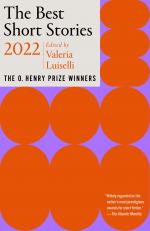|
This section contains 1,203 words (approx. 4 pages at 400 words per page) |

|
Identity
The futuristic and fantastical elements of the short story “Dengue Boy” amplify the intensity of the individual’s coming-of-age experience. By writing Dengue Boy as an insect rather than as a human boy, the author is able to expose and highlight the extreme nature of his self-consciousness, self-doubt, and low self-esteem. The author begins the story by centralizing Dengue Boy’s isolation: “Nobody liked Dengue Boy,” the narrator says in the opening line of the narrative (210). The narrator goes on to hypothesize about why: “It might have been his long beak, or the constant annoying buzz of his wings rubbing together, which distracted the rest of the class, but whatever it was, when the kids rushed into yard at recess . . . poor Dengue Boy sat alone at his desk in the classroom” (210). Dengue Boy’s mosquito form therefore is a metaphor for his peculiarities and oddities. In...
|
This section contains 1,203 words (approx. 4 pages at 400 words per page) |

|




